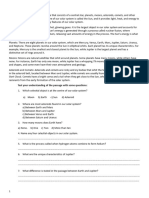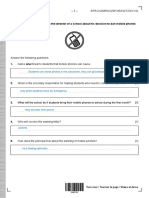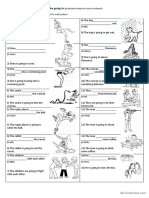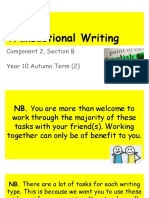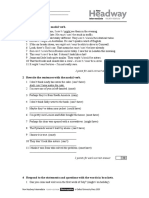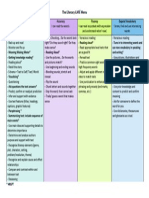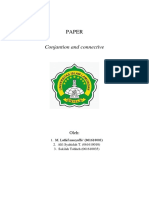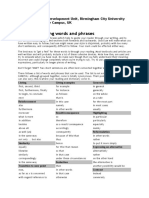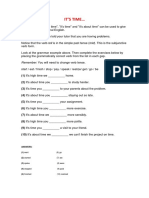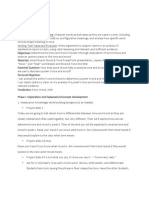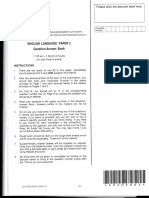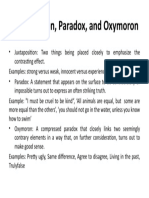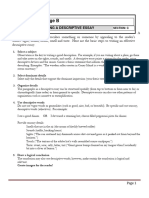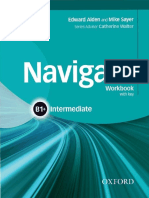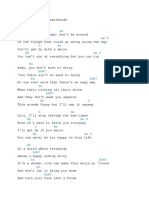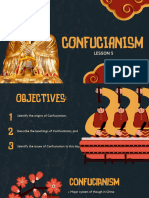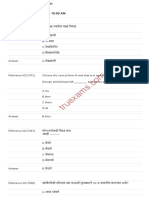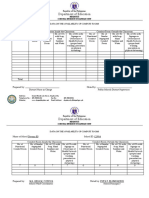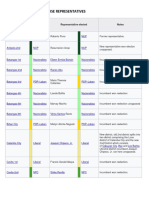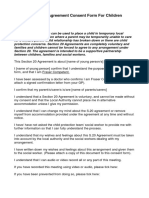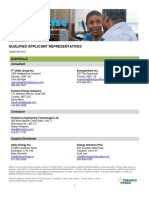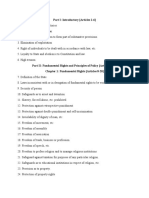UNIT 2
CUSTOMS AND TRADITIONS
LANGUAGE DEVELOPMENT
SUFFIXES
1. Look at the words below. The suffixes are in bold. Is each word a noun, a verb or
an adjective?
1. traditional adjective
2. modernize
3. acceptable
4. deepen
5. development
6. specialization
7. technology
8. celebrate
2. Correct the mistakes in bold using the word forms in brackets.
1. Chinese New Year is a great celebrate. (noun)
2. I got 50% in my exam. That’s accept but not great. (adjective)
3. My equip is getting old. I need a new keyboard. (noun)
4. The politics situation in this country is very stable. (adjective)
5. Please short your presentation – it’s too long. (verb)
6. I want to special in foreign languages. (verb)
3. Look at the sentences (1–3) and the suffixes in bold. Then complete rules a–c.
1. Things that are acceptable in one culture are unacceptable in another.
2. Growing up in two different cultures is helpful in making you realize that
customs and traditions are often local.
3. We don’t have to spend endless hours making our own bread or butter.
a. The suffix means ‘full of’.
b. The suffix means ‘without’.
c. The suffix means ‘can be’.
4. Complete the sentences with the correct form of the words in brackets.
1. A lot of people think that it’s bad for teenagers to spend so much time on
social-networking sites, but I think it’s (harm). It’s just fun!
2. You can find a lot of good, (use) information on the internet. But to be honest,
a lot of it is not (rely). You need to be (care).
3. It’s (enjoy) to celebrate national holidays.
4. Some people might think you’re (thought) if you don’t remember
their birthday.
5. Work with a partner. Which sentences in Exercise 4 do you agree with?
1
�DEPENDENT PREPOSITIONS
Dependent prepositions
Many verbs, nouns and adjectives are followed by a preposition. These are
EXPLANATION
called ‘dependent prepositions’. For example, adapt to means ‘become
familiar with a new situation’:
It took me a long time to adapt to the new job.
It is important to remember these prepositions when you learn new words. If
you are not sure which preposition to use, you can use a dictionary.
6. Complete the sentences below with a preposition from the box.
In with to(x2) for about
1. Customs and traditions change and adapt to the modern world.
2. People are spending more time interacting each other on the internet.
3. When did you first become interested Anthropology?
4. Due developments in technology, people communicate less face-to-face.
5. There are people who complain the changes that technology has brought
to our lives.
6. Some dishes could take up to a week to prepare, but now we don’t have to
work so hard. The reason this is that we have modern kitchens and
supermarket food.
7. Circle the correct prepositions. Use a dictionary to help you.
1. Do you adapt quickly for / to new situations?
2. Do you like listening for / to traditional music?
3. When you search for / about information online, what websites do you use?
4. Do we always benefit from / about new technology?
5. What is the effect of / about new technology on / for old traditions?
DISCUSSION 1
7. Work with a partner. Ask and answer the questions in Exercise 7.
2
� LISTENING 2
PREPARING TO LISTEN
1. Look at the words in bold and match the sentence halves.
1. Social-networking sites, like Facebook and Twitter,
2. There are lots of rules in my office –
3. You can upload
4. The biggest event this year
5. My behaviour when I was a child
6. I like to share my photos and news
7. He’s always showing off his new car –
8. When I was young, I never had any privacy
a. photos to the website.
b. was always bad – my parents were always angry with me.
c. help us keep in touch with friends.
d. with my family and friends.
e. for example, you can’t use the internet, except for work emails.
f. was my grandfather’s 90th birthday party.
g. because I had to share a bedroom with my sister.
h. he wants people to think he’s rich.
2. You are going to listen to three students discussing modern ways of behaving.
Before you listen, look at the pictures below. What do you think will be discussed?
3. 2.6 Listen to the first part of the discussion. Check your ideas.
4. Work in small groups. What do you think about the social-networking activities
below? Which do you do?
1 chatting with friends
2 sending birthday messages to people you don’t know well
3 clicking on like
4 sharing videos or personal photos
3
� 5 commenting on other people’s photos
6 inviting friends to play online games
WHILE LISTENING
5. 2.7 Listen to the discussion. Which activities in Exercise 4 do the people
mention?
6. Listen again. Why do the people say these things?
1 Dora: ‘Sorry, but that’s really lazy.’
2 Dora: ‘It’s really annoying.’
3 Yildiz: ‘I like to see what other people are doing.’
4 David: ‘Is it sharing or is it showing off?’
5 David: ‘I think that personal events should be for family or close friends.’
6 Dora: ‘It’s an easy, cheap way to stay in touch with people.’
POST-LISTENING
7. 2.8 Listen and complete the opinion phrases in bold.
1. I couldn’t agree more.
2. Most photos posted online are not that interesting anyway. It seems
to me.
3. I totally . I get tired of it.
4. No, I completely . I think that it’s nice that people post news
about exciting or interesting things that happen to them.
5. I’m not . Is it sharing or is it showing off?
6. OK, but what about when you get married or have a new baby? Why not
share it online with other people? , I don’t have a problem with it.
7. Sorry, I don’t . I think that personal events should be for family
and close friends.
8. Complete the table below with phrases from Exercise 7.
signposting an opinion agreeing disagreeing
It seems … to me.
What about …?
Why not …?
Personally, I ….
I think that …
DISCUSSION 2
9. Work in small groups of 3 to 5 students. Discuss the statements below.
1. People share too much information about themselves online.
2. Young people don’t know how to interact in the real world.
3. ‘Friends’ on social-networking sites are not real friends.




